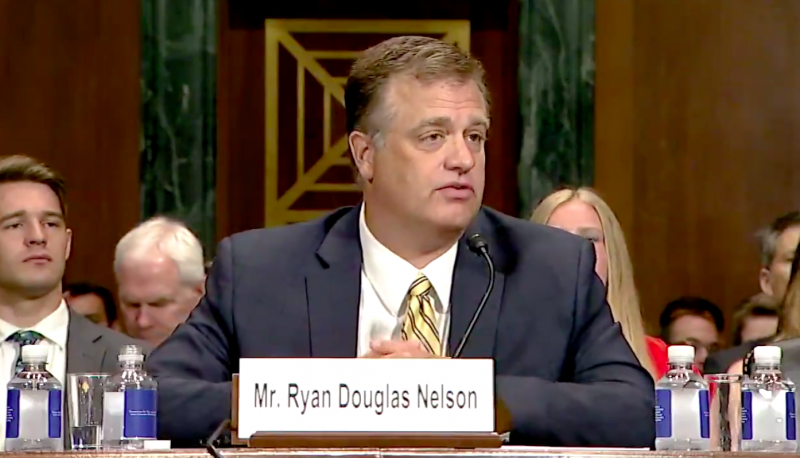“Confirmed Judges, Confirmed Fears” is a blog series documenting the harmful impact of President Trump’s judges on Americans’ rights and liberties.
After the Rwandan genocide, Samuel Ishimwe came to America seeking asylum and relief under the Convention Against Torture treaty. In July, Trump Ninth Circuit judge Ryan Nelson would have upheld the government’s denial of his petition, a denial that was criticized by a majority that included George W. Bush judge N. Randy Smith. The case was Ishimwe v. Barr.
Ishimwe’s petition had been rejected by an immigration judge (IJ), who found his testimony not credible (i.e., that Ishimwe was lying). The IJ cited nine inconsistencies, acknowledging that at least “some” were minor and couldn’t actually support his adverse credibility finding by themselves, but not stating which inconsistency (if any) could support such a finding. Nevertheless, the Board of Immigration Appeals (BIA) upheld the denial. On appeal, the Ninth Circuit concluded that there wasn’t a sufficient basis for the IJ’s adverse credibility finding and remanded the case for the BIA to reconsider the case.
Going through each of the IJ’s nine adverse credibility findings, the majority explained how “seven were not supported by substantial evidence” (the legal standard). For instance, the IJ improperly relied on the transcript of an anonymous witness who had testified in an unrelated proceeding and who Ishimwe had not had a chance to cross-examine. The majority found this “neither probative nor fundamentally fair.”
Another finding the IJ took issue with involved Ishimwe’s testimony about finding a grenade one morning in front of his home left by Tutsi soldiers who had confronted him and his family during the night. His asylum application stated that the soldiers had shown him they were carrying a grenade. But in his direct testimony, he did not mention that he had seen the grenade during the night. The IJ and BIA interpreted the absence of that detail to be a sign of dishonesty, an interpretation Judge Nelson agreed with. But the majority observed that Ishimwe confirmed this detail when specifically asked about it. Moreover, the panel noted that “whether [the soldiers] showed him the grenade prior to leaving it does not enhance Ishimwe’s claim.”
That left only two of the IJ’s adverse credibility findings for the court to analyze, and Judge Nelson’s description of that analysis was less than accurate and complete. According to the dissent, the panel concluded that both of the remaining inconsistency findings “were supported by substantial evidence.” In fact, the panel found only that they may have been so supported. Nelson also suggested that the majority remanded the case only on the basis that those two inconsistencies did not go to the heart of Ishimwe’s claim. However, the majority gave a second reason that Nelson left out: that “the BIA and the IJ [had] relied on ‘the number of inconsistencies’” to justify the denial of Ishimwe’s petition. In fact, the court could not know if the BIA would have reached the same conclusion under the totality of the circumstances if there were no more than two inconsistencies rather than nine, and if neither of them went to the heart of the matter. Hence, the remand.
Especially as the Trump administration continues to narrow pathways to asylum, African immigrants face unique racial and cultural challenges in the U.S. immigration system. But regardless of the specifics of any particular cases, all asylum petitions should be analyzed fairly and seriously and consistently with congressional direction.

